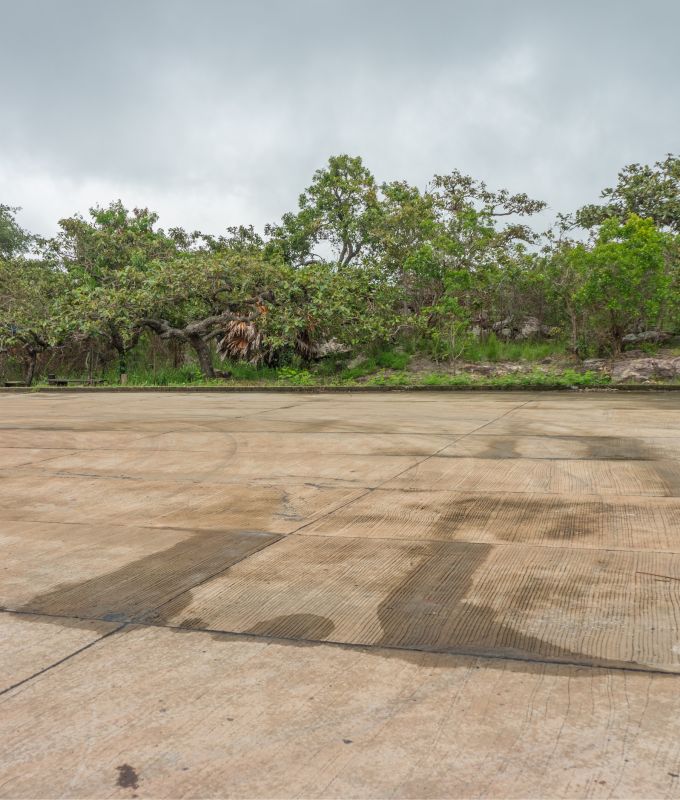Top Choices For Concrete Installation Supplies To Maximize Results
Explore key products designed to ensure precision, strength, and longevity in your concrete installation projects.
 Concrete installations are fundamental to a wide range of construction and renovation projects, from residential driveways to commercial flooring and decorative surfaces. Selecting the right products for concrete work can significantly influence the durability, appearance, and longevity of the finished project. Whether you are sealing a new slab, repairing cracks, or creating decorative finishes, understanding the variety of available products is essential. Proper preparation and the right materials ensure that concrete structures maintain their integrity over time and withstand daily wear and tear.
Concrete installations are fundamental to a wide range of construction and renovation projects, from residential driveways to commercial flooring and decorative surfaces. Selecting the right products for concrete work can significantly influence the durability, appearance, and longevity of the finished project. Whether you are sealing a new slab, repairing cracks, or creating decorative finishes, understanding the variety of available products is essential. Proper preparation and the right materials ensure that concrete structures maintain their integrity over time and withstand daily wear and tear.
Top Overall Option
Multi-Purpose Concrete Sealant
A versatile concrete sealant designed to protect surfaces from moisture, stains, and cracking. It offers ease of application and compatibility with various concrete types, making it suitable for both indoor and outdoor projects. This product helps maintain the integrity and appearance of concrete surfaces over time.
Types of Products For Concrete Installations
Concrete Sealers
Products used to protect concrete surfaces from water, stains, and wear, enhancing durability and appearance.
Concrete Patching Compounds
Materials designed for repairing cracks, holes, and surface imperfections in concrete.
Bonding Agents
Adhesives that improve the bond between old and new concrete layers or overlays.
Concrete Admixtures
Additives incorporated into concrete mixes to modify properties such as setting time, workability, or strength.
Surface Hardeners
Products applied to increase surface durability and resistance to abrasion.
Decorative Stains and Dyes
Coloring agents used to add visual interest and decorative effects to concrete surfaces.
Textured Coatings
Materials that provide slip-resistant or decorative textures to concrete surfaces.
Concrete Overlays
Thin layers applied over existing concrete to improve appearance or restore surface quality.
Form Release Agents
Products used to prevent concrete from sticking to molds during casting.
Concrete Curing Compounds
Materials that retain moisture in concrete during the curing process to ensure proper strength development.
Expansion Joints
Components that allow for movement and prevent cracking due to temperature changes or settling.
Concrete Edging Tools
Tools designed to create clean, defined edges along concrete slabs and surfaces.
Popular Choices
Widely used to protect concrete surfaces from moisture and stains, suitable for various environments.
Commonly selected for filling and sealing cracks to prevent further damage.
Popular for enhancing adhesion between old and new concrete layers.
Trending for adding decorative color to concrete surfaces with a variety of shades.
Chosen for slip-resistant and decorative finishes on walkways and patios.
Often used to refresh and upgrade existing concrete surfaces with new textures or colors.
Popular for ensuring proper moisture retention during concrete curing processes.
Essential components for large slabs to accommodate movement and reduce cracking.
Commonly used in casting to achieve clean mold releases and smooth finishes.
Frequently utilized for quick fixes to surface imperfections and damages.
Popular for long-term protection against stains, moisture, and surface wear.
For any concrete project, the initial step often involves surface preparation, which may include cleaning, grinding, or applying bonding agents. Following this, products such as sealers and coatings are used to protect the surface from moisture, stains, and damage. For structural repairs, specialized patching compounds and adhesives are necessary to restore strength and stability. Decorative elements like stains, overlays, and textured finishes can also enhance the visual appeal of concrete surfaces. Choosing products that are compatible with your specific application and environmental conditions is crucial for achieving optimal results.
In addition to functional products, safety equipment such as gloves, masks, and protective eyewear should be considered to ensure safe handling of chemicals and powders. Proper application techniques, along with high-quality products, can make a significant difference in the ease of installation and the quality of the finished surface. Consulting product specifications and manufacturer instructions can help in selecting the most suitable materials for your project, whether it is a small repair or a large-scale installation. Overall, investing in the right concrete products can contribute to a more durable and visually appealing outcome.
Key Buying Considerations
- Determine the specific application and select products compatible with your project requirements.
- Consider environmental conditions such as exposure to moisture, temperature fluctuations, and UV rays.
- Evaluate the compatibility of sealers or coatings with existing surfaces or materials.
- Assess the drying and curing times to coordinate project schedules effectively.
- Check for ease of application, including tools required and surface prep needs.
- Review product labels for coverage area to estimate quantities needed accurately.
- Prioritize products with proven adhesion and durability for structural repairs.
- Ensure safety and handling instructions are suitable for your experience level and workspace.
- Research product longevity and maintenance requirements for long-term performance.
- Consider aesthetic preferences, especially for decorative finishes or color options.
- Verify compatibility with other products, such as overlays or stains, if combining treatments.
- Look into manufacturer instructions for surface preparation and application techniques.
- Determine if the product is suitable for indoor, outdoor, or both types of installations.
- Review user feedback and ratings to gauge real-world performance and satisfaction.
- Ensure the product complies with local building codes and standards applicable in Fort Mill, SC.
